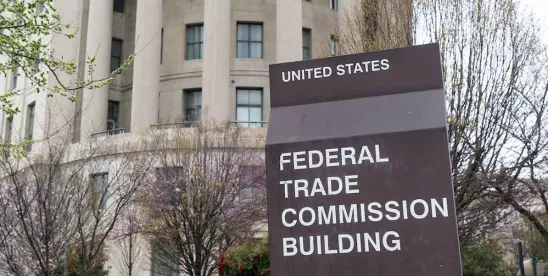The FTC’s recent campaign against private equity roll-ups hit a stumbling block on May 13 as the United States District Court for the Southern District of Texas tossed out the Federal Trade Commission’s antitrust claims against private equity firm Welsh Carson Anderson & Stowe.
The FTC filed its complaint in September 2023 against Welsh Carson and U.S. Anesthesia Partners, Inc., an anesthesia practice created by Welsh Carson to consolidate the Texas hospital anesthesia market. Through USAP, Welsh Carson targeted and rolled up anesthesia practices throughout Texas, culminating in USAP’s control over roughly 60% of all hospital-based anesthesia services in the state, according to the FTC.
The FTC alleged that this arrangement resulted in reduced competition and increased prices for patients and their employers, and it sued both USAP and Welsh Carson under Section 13(b) of the FTC Act, which allows the FTC to seek injunctive relief where a business “is violating, or is about to violate” any law for which the FTC has enforcement authority. To the court, therein lay the problem. While Welsh Carson had created USAP and driven its roll-up strategy, Welsh Carson sold off its controlling stake in USAP in 2017 and now holds only a 23% equity stake and two out of 14 board seats. The Court held that it was insufficient for Welsh Carson to have only minority ownership in an entity alleged to be reducing competition. In order to be subject to Section 13(b), a defendant’s “ongoing conduct must reduce competition,” but the Court characterized the FTC’s allegation as boiling down to an allegation that the scheme was ongoing because USAP continued to exist. It instead held “that goes to USAP’s violations, not Welsh Carson’s.”
Moreover, the Court found that Welsh Carson failed to state a claim that Welsh Carson was “about to violate” the antitrust laws because allegations regarding its capacity or desire to reinvest in USAP did not raise an inference that Welsh Carson will do so.
The court ultimately refused to adopt the FTC’s maximalist and “novel” interpretation of Section 13(b) to “expand liability to minority investors whose subsidiaries reduce competition” and granted Welsh Carson’s motion to dismiss. However, it denied USAP’s motion, and the case will continue against USAP. The court found that the FTC plausibly alleged that USAP continues to hold and operate at least 15 anesthesia groups acquired over the past 12 years and that the continuing maintenance of the assets of these businesses could constitute an ongoing violation of antitrust law to the extent that the FTC alleged USAP’s actions contribute to USAP’s monopoly power and a reduction in competition.
Still, the ruling in favor of Welsh Carson is a snag in the FTC’s recent emphasis on targeting private equity roll-up transactions in healthcare and it may—at least for now, pending a possible FTC appeal—insulate minority investors in private equity roll-ups from antitrust liability. However, as demonstrated by the denial of USAP’s motion to dismiss, the risk of exposure remains for entities that own or control ongoing or imminent efforts to roll-up markets in the healthcare space, and industry stakeholders should be cognizant of the FTC and DOJ’s continued focus and willingness to take action on alleged reductions in competition in healthcare.





 />i
/>i

